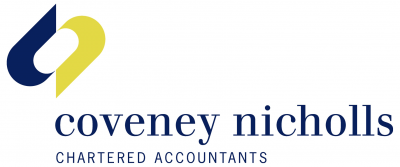As a locum GP, you’ll have a large workload to manage even before you start considering your finances.
But there are ways to minimise the time you spend poring over your tax returns and scheduled payments, saving yourself a lot of stress.
Here are some tips on how to manage your finances.
1. Decide on your practice structure
As a locum GP, you can decide to operate as a sole trader or register as a limited company.
If you decide on being a sole trader, you’ll register with HMRC and complete a self-assessment tax return each year, submitting your invoices and expenses along with your annual income.
If you register as a limited company, you can look at reducing your tax bills and National Insurance contributions (NICs) by paying yourself a combination of salaried pay and dividends.
2. Stay on top of pension contributions
If you work as a sole trader, you’ll be contributing to your NHS pension. You’ll need to complete pension forms monthly and send them to the pensions office.
As a limited company, you can pay yourself a pension, salary, and dividends – but a major downside is that you can’t make contributions to an NHS pension through income earned this way.
3. Keep records
You must keep track of your expenditure, so by using a record-keeping system you can stay on top of your spending. Logging your expenses and invoices will keep everything in one place, saving the need to spend hours organising all your paperwork.
4. Expenses and mileage
Being as tax-efficient as possible means managing your income and making use of tax-deductible expenses. Logging your mileage and recording your spending on the essentials is the best way to claim something back at the end of your tax period.
5. Have a separate bank account
If you’re a limited company, having a separate bank account can help you track how much you’re earning.
Keeping your personal and company finances separate will minimise the chance of spending company money, as well as giving you a better picture of your personal finances.
6. Hire an accountant
It’s much easier to get on with your own work when you have an expert managing your finances for you.
Accountancy firms (like us) specialise in looking after locum GP accounts and can deal with HMRC for you.
7. Cashflow forecasting
Although work can be unpredictable, creating a cashflow forecast will give you a better picture of your income and expenditure. If done correctly, a cashflow forecast will show you how much you can expect to have in future, allowing you to plan for any highs and lows.
8. Understanding IR35
Being inside IR35 or outside IR35 depends on how you operate, and whether you work in a similar way to an employee or a self-employed worker. Depending on your IR35 status, you might have to pay different levels of tax and NICs. Guidance on IR35 can be found on the British Medical Association website.
9. Look at your rates
Making sure you’re charging enough for the work you carry out is essential. You don’t want to undersell yourself or charge too much. Ask your accountant and other locum GPs about setting your rates.
10. Talk to a professional
Accounting for your finances isn’t part of your medical training. It can be confusing and sometimes a bit too much to handle. That’s why speaking to a professional advisor is an excellent way to understand how to better manage your finances.
The team at Coveney Nicholls is on hand to answer any questions about managing your finances. Get in touch today.

